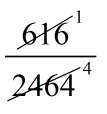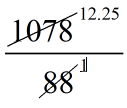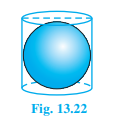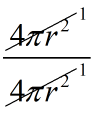NCERT Solutions Class 9 Maths Chapter 13 Surface area and Volume Exercise 13.4
Introduction:
In this exercise/article we will learn about Surface Area And Volume. Surface area of a sphere. You can say ,because a circle is a plan closed figure whose every point lies at a constant distance (called radius) from a fixed point, which is called the center of the circle. So, it is called a sphere. Curved surface of a hemisphere and total surface area of hemisphere. It gets divided into two equal part, What will each half be called? it is called a hemisphere. ( because 'hemi' also means 'half' ).
Class 9 Maths Chapter 13 Surface Area And Volume :
- NCERT Class 9 Maths Chapter 13 Surface Area And Volume Exercise 13.1
- NCERT Class 9 Maths Chapter 13 Surface Area And Volume Exercise 13.2
- NCERT Class 9 Maths Chapter 13 Surface Area And Volume Exercise 13.3
- NCERT Class 9 Maths Chapter 13 Surface Area And Volume Exercise 13.4
- NCERT Class 9 Maths Chapter 13 Surface Area And Volume Exercise 13.5
- NCERT Class 9 Maths Chapter 13 Surface Area And Volume Exercise 13.6
- NCERT Class 9 Maths Chapter 13 Surface Area And Volume Exercise 13.7
- NCERT Class 9 Maths Chapter 13 Surface Area And Volume Exercise 13.8
Class 9 Maths Exercise 13.4 (Page-225)
Q1. Find the surface area of a sphere of radius :
(i) 10.5 cm (ii) 5.6 cm (iii) 14 cm
Solution :
According to the question,
(i) Given, Radius = 10.5 cm
So, Surface area of a sphere = 4πr2
= 4 × \(\displaystyle \frac{{22}}{7}\) × ( 10.5 )2
= 4 × \(\displaystyle \frac{{22}}{7}\) × 110.25
= \(\displaystyle \frac{{88}}{7}\) × 110.25
= \(\displaystyle \frac{{9702}}{7}\)
= 1386 cm2
∴ The surface area of a sphere = 1386 cm2
(ii) Given, Radius = 5.6 cm
So, Surface area of a sphere = 4πr2
= 4 × \(\displaystyle \frac{{22}}{7}\) × ( 5.6 )2
= 4 × \(\displaystyle \frac{{22}}{7}\) × 31.36
= \(\displaystyle \frac{{88}}{7}\) × 31.36
= \(\displaystyle \frac{{2759.68}}{7}\)
= 394.24 cm2
∴ The surface area of a sphere = 394.24 cm2
(iii) Given, Radius = 14 cm
So, Surface area of a sphere = 4πr2
= 4 × \(\displaystyle \frac{{22}}{7}\) × ( 14 )2
= 4 × \(\displaystyle \frac{{22}}{7}\) × 196
= \(\displaystyle \frac{{88}}{7}\) × 196
= \(\displaystyle \frac{{17248}}{7}\)
= 2464 cm2
∴ The surface area of a sphere = 2464 cm2 .
Q2. Find the total surface area of a sphere of diameter :
(i) 14 cm (ii) 21 cm (iii) 3.5 cm
Solution :
According to the question,
(i) Radius = \(\displaystyle \frac{d}{2}\)
Radius = \(\displaystyle \frac{{14}}{2}\)
Radius = 7 cm
Given, Radius = 7 cm
So, Surface area of a sphere = 4πr2
= 4 × \(\displaystyle \frac{{22}}{7}\) × ( 7 )2
= 4 × \(\displaystyle \frac{{22}}{7}\) × 49
= \(\displaystyle \frac{{88}}{7}\) × 49
= \(\displaystyle \frac{{4312}}{7}\)
= 616 cm2
∴ Total surface area of a sphere = 616 cm2
(ii) Radius = \(\displaystyle \frac{d}{2}\)
Radius = \(\displaystyle \frac{{21}}{2}\)
Radius = 10.5 cm
Given, Radius = 10.5 cm
So, Surface area of a sphere = 4πr2
= 4 × \(\displaystyle \frac{{22}}{7}\) × ( 10.5 )2
= 4 × \(\displaystyle \frac{{22}}{7}\) × 110.25
= \(\displaystyle \frac{{88}}{7}\) × 110.25
= \(\displaystyle \frac{{9702}}{7}\)
= 1386 cm2
∴ Total surface area of a sphere = 1386 cm2
(iii) Radius = \(\displaystyle \frac{d}{2}\)
Radius = \(\displaystyle \frac{{3.5}}{2}\)
Radius = 1.75 cm
Given, Radius = 1.75 cm
So, Surface area of a sphere = 4πr2
= 4 × \(\displaystyle \frac{{22}}{7}\) × ( 1.75 )2
= 4 × \(\displaystyle \frac{{22}}{7}\) × 3.0625
= \(\displaystyle \frac{{88}}{7}\) × 3.0625
= \(\displaystyle \frac{{269.5}}{7}\)
= 38.5 cm2
∴ Total surface area of a sphere = 38.5 cm2 .
Q3. Find the total surface area of a hemisphere of radius 10 cm. ( Use π = 3.14 )
Solution :
According to the question,
Given, Radius = 10 cm
So, Surface area of a hemisphere = 3πr2
= 3 × 3.14 × ( 10 )2
= 3 × 3.14 × 100
= 9.42 × 100
= 942 cm2
∴ Total surface area of a hemisphere = 942 cm2 .
Q4. The radius of a spherical balloon increase from 7 cm to 14 cm as air is being pumped into it. Find the ratio of surface area of the balloon in the two cases.
Solution :
According to the question,
Case (i)
Given, Radius = 7 cm
So, Surface area of the balloon = 4πr2
= 4 × \(\displaystyle \frac{{22}}{7}\) × ( 7 )2
= 4 × \(\displaystyle \frac{{22}}{7}\) × 49
= \(\displaystyle \frac{{88}}{7}\) × 49
= \(\displaystyle \frac{{4312}}{7}\)
= 616 cm2
∴ Surface area of the balloon = 616 cm2
Case (ii)
Given, Radius = 14 cm
So, Surface area of the balloon = 4πr2
= 4 × \(\displaystyle \frac{{22}}{7}\) × ( 14 )2
= 4 × \(\displaystyle \frac{{22}}{7}\) × 196
= \(\displaystyle \frac{{88}}{7}\) × 196
= \(\displaystyle \frac{{17248}}{7}\)
= 2464 cm2
∴ Surface area of the balloon = 2464 cm2
Now, Ratio of surface area of the balloon = \(\displaystyle \frac{{Case\,i}}{{Case\,ii}}\)
= \(\displaystyle \frac{{616}}{{2464}}\)
= 
= \(\displaystyle \frac{1}{4}\)
∴ Ratio of surface area of the balloon = 1:4
Q5. A hemisphere bowl made of brass has inner daimeter 10.5 cm. Find the cost of tin-plating it on the inside at the rate of Rs 16 per 100 cm2.
Solution :
According to the question,
Radius = \(\displaystyle \frac{d}{2}\)
Radius = \(\displaystyle \frac{{10.5}}{2}\)
Radius = 5.25 cm
Given, Radius = 5.25 cm
So, Inner surface area of a sphere = 2πr2
= 2 × \(\displaystyle \frac{{22}}{7}\) × ( 5.25 )2
= 2 × \(\displaystyle \frac{{22}}{7}\) × 27.5625
= \(\displaystyle \frac{{44}}{7}\) × 27.5625
= \(\displaystyle \frac{{1212.75}}{7}\)
= 173.25 cm2
Now, Cost of tin-plating at the rate Rs 16 per 100 cm2
Cost of tin-plating 173.25 cm2 area = Rs 173.25 × \(\displaystyle \frac{{16}}{{100}}\)
= Rs \(\displaystyle \frac{{2772}}{{100}}\)
= Rs 27.72
∴ The cost of tin-plating inside at the rate of Rs 16 per 100 cm2 = Rs 27.72 .
Q6. Find the radius of a sphere whose surface area is 154 cm2.
Solution :
According to the question,
Given, Surface area of a sphere = 154 cm2
So, Surface area of a sphere = 4πr2
⇒ 154 = 4 × \(\displaystyle \frac{{22}}{7}\) × r2
⇒ 154 = \(\displaystyle \frac{{88}}{7}\) × r2
⇒ 154 × 7 = 88r2
⇒ 1078 = 88r20
⇒ 
⇒ √12.25 = r2 [ if you not understand than, using long division method ]
⇒ 3.5 cm2 = r
∴ The radius of a sphere = 3.5 cm2 .
Q7. The diameter of the moon is approximately one fourth of the diameter of the earth. Find the ratio of their surface areas.
Solution :
According to the question,
Given, \(\displaystyle {{d}_{m}}\) = \(\displaystyle \frac{1}{4}{{d}_{e}}\)
\(\displaystyle {{r}_{m}}\) = \(\displaystyle \frac{1}{4}{{r}_{e}}\)
So, \(\displaystyle {{r}_{m}}\) = \(\displaystyle \frac{1}{4}{{r}_{e}}\)
⇒ 4\(\displaystyle {{r}_{m}}\) = \(\displaystyle {{r}_{e}}\)
Now, \(\displaystyle \frac{{surface\,area\,of\,the\,moon\,}}{{surface\,area\,of\,the\,earth\,}}\,=\,\frac{{4\pi {{r}_{m}}^{2}}}{{4\pi {{r}_{e}}^{2}}}\)
= 
= \(\displaystyle \frac{{{{r}_{m}}^{2}}}{{{{r}_{e}}^{2}}}\)
= \(\displaystyle \frac{{{{r}_{m}}^{2}}}{{{{{(4{{r}_{m}})}}^{2}}}}\)
= \(\displaystyle \frac{{{{r}_{m}}^{2}}}{{16{{r}_{m}}^{2}}}\)
= 
= \(\displaystyle \frac{1}{{16}}\)
∴ The ratio of their surface areas = 1 : 16 .
Q8. A hemisphere bowl is made of steel, 0.25 cm thick. The inner radius of the bowl is 5 cm. Find the outer curved surface area of the bowl.
Solution :
According to the question,
Given, Inner radius = 5 cm
thick = 0.25
Now, The outer radius of hemisphere = 5 + 0.25
= 5.25 cm
So, Curved surface area of the bowl = 2πr2
= 2 × \(\displaystyle \frac{{22}}{7}\) × ( 5.25 )2
= 2 × \(\displaystyle \frac{{22}}{7}\) × 27.5625
= \(\displaystyle \frac{{44}}{7}\) × 27.5625
= \(\displaystyle \frac{{1212.75}}{7}\)
= 173.25 cm2
∴ The curved surface area of the bowl = 173.25 cm2 .
Q9. A right circular cylinder just enclosed a sphere of radius r ( see fig. 13.22 ). Find
(i) surface area of the sphere
(ii) curved surface area of the cylinder,
(iii) ratio of the area obtained in (i) and (ii).

Solution :
According to the given '' right circular cylinder ''
Given, Radius = r
(i) surface area of the sphere = 4πr2
(ii) curved surface area of the cylinder = 2πrh = 2πr( 2r ) [ Because, Height is twice of radius ]
= 4πr2
(iii) ratio of the area obtained in (i) and (ii) = \(\displaystyle \frac{{surface\,area\,of\,the\,sphere}}{{curved\,surface\,area\,of\,the\,cylinder}}\)
= \(\displaystyle \frac{{4\pi {{r}^{2}}}}{{4\pi {{r}^{2}}}}\)
= 
= \(\displaystyle \frac{1}{1}\)
∴ Ratio of the area obtained = 1:1 .
Class 9 Maths Chapter 13 Surface Area And Volume :
- NCERT Class 9 Maths Chapter 13 Surface Area And Volume Exercise 13.1
- NCERT Class 9 Maths Chapter 13 Surface Area And Volume Exercise 13.2
- NCERT Class 9 Maths Chapter 13 Surface Area And Volume Exercise 13.3
- NCERT Class 9 Maths Chapter 13 Surface Area And Volume Exercise 13.4
- NCERT Class 9 Maths Chapter 13 Surface Area And Volume Exercise 13.5
- NCERT Class 9 Maths Chapter 13 Surface Area And Volume Exercise 13.6
- NCERT Class 9 Maths Chapter 13 Surface Area And Volume Exercise 13.7
- NCERT Class 9 Maths Chapter 13 Surface Area And Volume Exercise 13.8